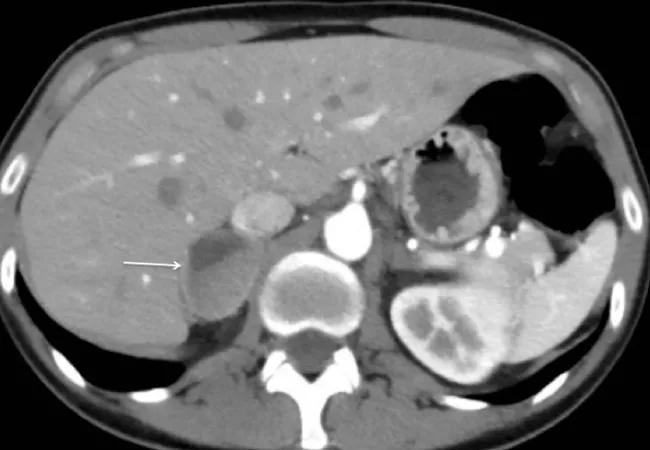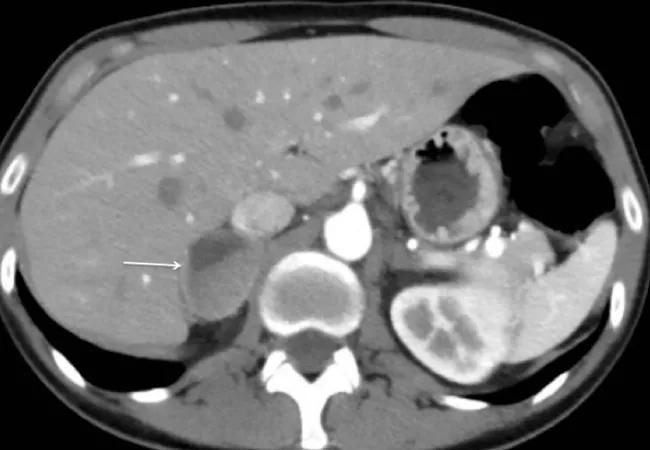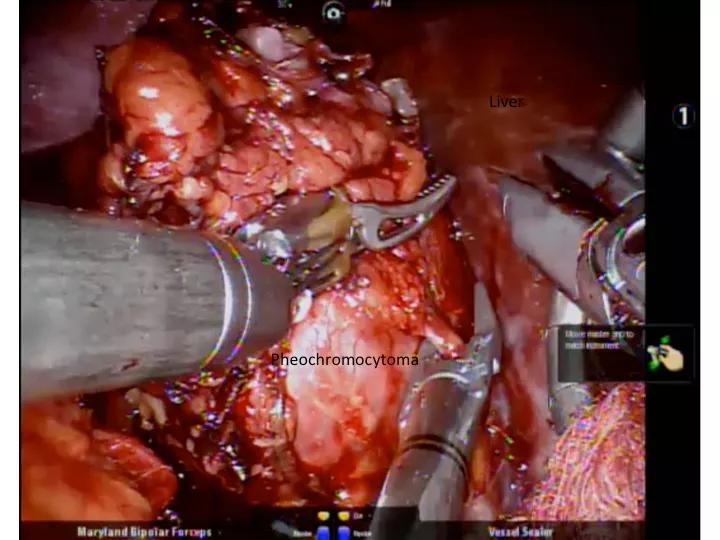
Image content: This image is available to view online.
View image online (https://assets.clevelandclinic.org/transform/765cf943-e145-4d25-bbdf-7c0d4c5cb183/Pre-opCT_650x450_jpg)
Pre-opCT_650x450
By Eren Berber, MD, and Georgiana Dobri, MD
Advertisement
Cleveland Clinic is a non-profit academic medical center. Advertising on our site helps support our mission. We do not endorse non-Cleveland Clinic products or services. Policy
Cleveland Clinic’s Endocrinology & Metabolism Institute offers a Multidisciplinary Adrenal Clinic that evaluates about 300 patients with adrenal disorders every year. Patients presenting at the Multidisciplinary Adrenal Clinic receive a workup of their adrenal tumors based on guidelines from the National Institutes of Health and the American Association of Clinical Endocrinologists/American Association of Endocrine Surgeons.
The center holds monthly Multidisciplinary Tumor Boards, where complex adrenal cases are discussed and treatment plans are developed. The Endocrine Surgery Department performs 40 to 50 adrenalectomies every year.
Some of the experts within the Adrenal Clinic from various disciplines include:
This patient case illustrates the accessibility of Cleveland Clinic’s adrenal disease experts, as well as the quality of our care based on a multidisciplinary approach:
A 50-year-old woman who was working overseas for the U.S. government presented at a hospital in Germany in hypertensive crisis. Imaging was performed and the patient was found to have a 4-cm right adrenal mass.
The treating physician contacted Dr. Berber seeking his expertise in adrenal disorders. Dr. Berber coordinated the appropriate workup, which included checking serum and 24-hour urine collections for catecholamines and metanephrines. The patient’s catecholamines and metanephrines were four-fold elevated.
Advertisement
The Cleveland Clinic Endocrine Surgery team stayed in communication with the physicians in Germany and the patient was started on alpha blockade with phenoxybenzamine, which stabilized her blood pressure.
Arrangements were made for her to have a minimally invasive adrenalectomy at Cleveland Clinic. Three weeks later, the patient traveled to Cleveland Clinic. The details of the operation were discussed with her, and she provided consent for a robotic adrenalectomy. The surgery was performed uneventfully.
The patient stayed one day in the hospital. She was discharged and at two-week followup, she was recovering well and did not have any complications. Plasma catecholamine and metanephrine levels at one month were normal, suggesting the patient was cured.
Figure 1. Preoperative CT scan demonstrating the right-sided pheochromocytoma.

Image content: This image is available to view online.
View image online (https://assets.clevelandclinic.org/transform/6c43ed15-e243-4a06-91b6-3650a8bf81eb/Pre-opCT_650x4501_jpg)
Figure 2. Intraoperative photo showing the dissection of the adrenal mass during robotic adrenalectomy.

Image content: This image is available to view online.
View image online (https://assets.clevelandclinic.org/transform/dadb97bc-6615-4672-ad85-77de7b46952e/inset_2_jpg)
Dr. Berber is Director of the Multidisciplinary Adrenal Clinic and Director of Robotic Endocrine Surgery in the Department of Endocrine Surgery. Dr. Dobri is an endocrinologist in the Department of Endocrinology, Diabetes and Metabolism, with a special interest in adrenal and pituitary disease. For more information contact Dr. Berber at berbere@ccf.org or 216.445.0555, or Dr. Dobri at dobrig@ccf.org or 216.636.5554.
Advertisement
Advertisement
First-of-its-kind research investigates the viability of standard screening to reduce the burden of late-stage cancer diagnoses
Global R&D efforts expanding first-line and relapse therapy options for patients
Study demonstrates ability to reduce patients’ reliance on phlebotomies to stabilize hematocrit levels
A case study on the value of access to novel therapies through clinical trials
Findings highlight an association between obesity and an increased incidence of moderate-severe disease
Cleveland Clinic Cancer Institute takes multi-faceted approach to increasing clinical trial access 23456
Key learnings from DESTINY trials
Overall survival in patients treated since 2008 is nearly 20% higher than in earlier patients